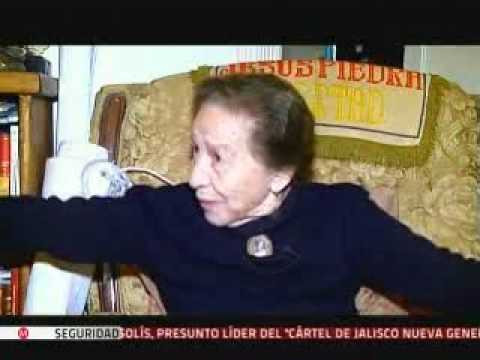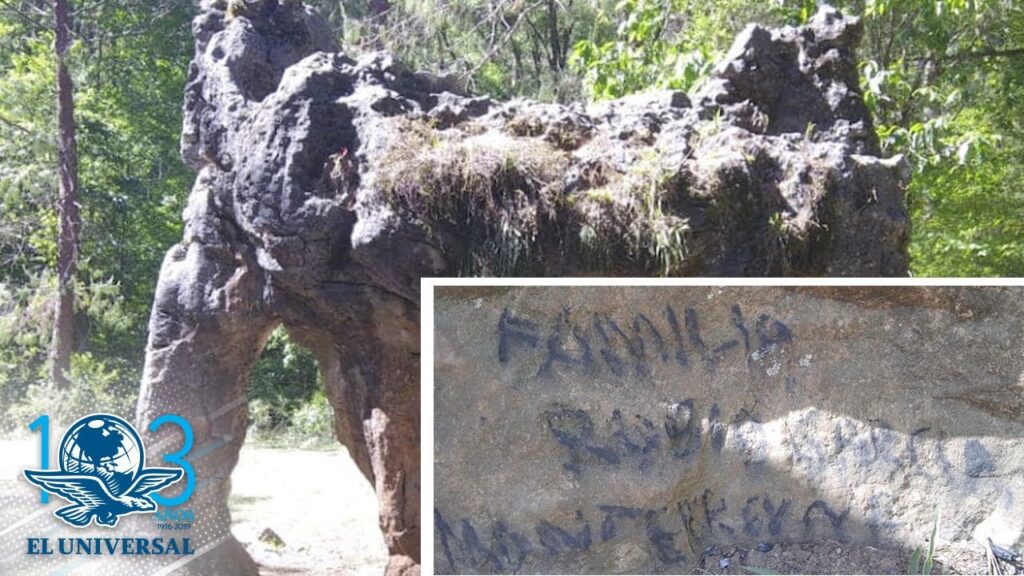A Pioneering Figure: Rosario Ibarra de Piedra’s Historic Presidential Candidacy
In 1982, Mexico witnessed a pivotal moment in its political history when Rosario Ibarra de Piedra, a fierce human rights activist and the leader of the “Comité ¡Eureka!”, became the first woman to run for the highest office in the country. Her presidential candidacy was not only a milestone for women’s political representation in Mexico but also a symbol of hope for many who desired profound social and political changes in the wake of the country’s authoritarian past.
Ibarra de Piedra’s journey into politics was rooted in personal tragedy. After her son Jesús Piedra Ibarra disappeared in 1975, presumably abducted by security forces during Mexico’s “Dirty War”, she embarked on an unwavering quest for justice. This personal search evolved into a larger movement advocating for the rights of the families of the disappeared, challenging the oppressive practices of the government, and shining a light on human rights violations. Her transition from an activist mother to a presidential candidate illustrated her tenacity and dedication to challenging the status quo.
Running under the banner of the Revolutionary Workers’ Party (PRT), Ibarra de Piedra’s campaign was groundbreaking not just for its historical significance, but also for its fervent message centered on human rights, democracy, and social justice. Although her chances of winning were slim against the dominant Institutional Revolutionary Party (PRI), which maintained a tight grip on Mexican politics for much of the 20th century, her candidacy was influential in paving the way for future generations of women leaders and activists.
Ibarra de Piedra’s efforts transcended her presidential bid. Her altruistic fight for the disappeared and her audacious step into a predominantly male political arena earned her the respect and admiration of many both within and outside Mexico. Despite the barriers she faced, her legacy as a pioneering figure continues to inspire those who fight for justice and equality, demonstrating that even in the face of overwhelming odds, one’s conviction and courage can still ignite significant change.
Rosario Ibarra de Piedra’s Impact on Mexican Politics and Women’s Rights
Against a tumultuous backdrop of civil unrest and political upheaval, Rosario Ibarra de Piedra emerged as a formidable figure in Mexican politics and a staunch advocate for women’s rights. Her journey began as a mother searching for her disappeared son during the Dirty War – a period of severe repression in Mexico from the 1960s to 1980s. Through her relentless quest for answers and justice, Ibarra de Piedra transcended personal tragedy to become a symbol of resistance and an inspirational leader for generations of Mexican women and activists.
In 1977, she founded the Comité Eureka, an organization composed of relatives of the disappeared that challenged the government’s silence on the issue of forced disappearances. With an unwavering voice, she stood at the forefront of demonstrations, not only to demand the whereabouts of her son and the hundreds of others who had vanished but also to represent the plight of women in a society often riddled with gender inequality. In doing so, Ibarra de Piedra shed light on systemic injustices and became instrumental in the broader push for human rights in Mexico.
Her advocacy eventually led her to enter the political arena, making her a pioneer for women in Mexican politics. Rosario Ibarra de Piedra ran for president twice, in 1982 and 1988, as the first female candidate from a leftist party, making significant strides for gender representation in high-level politics. Though she did not win the presidency, her campaigns were a milestone, rallying women across the nation and sowing the seeds for future female political engagement and empowerment in a landscape that had long been dominated by male figureheads.
Breaking Barriers: Rosario Ibarra de Piedra’s 1988 Presidential Run
In 1988, Mexico witnessed a monumental moment in its political history with the presidential candidacy of Rosario Ibarra de Piedra. As the first woman ever to run for the highest office in the country, her campaign was not just about seeking power; it symbolized a fight for democracy and human rights. Ibarra de Piedra, a prominent activist and founder of the “Comité Eureka” which campaigned for the whereabouts and release of political prisoners, brought a new perspective to Mexican politics.
Ibarra’s campaign was rooted in her personal narrative – one marked by the disappearance of her son, Jesús Piedra Ibarra, who was taken by security forces in the 1970s. Her tireless quest for answers transformed into a broader advocacy for those whose voices were silenced. She became an emblem of resilience and hope for many, laying the groundwork for her historic run for presidency.
Her political platform was a direct challenge to the status quo. She called for the end of corruption, impunity, and social injustices that plagued the nation. Despite facing immense challenges including limited campaign funds and media coverage, Ibarra’s voice resonated with a sector of the Mexican populace tired of traditional politics. Her campaign, though not victorious, managed to secure a significant political and social impact.
Running as the candidate of the Partido Revolucionario de los Trabajadores (PRT), a leftist party, Ibarrea’s campaign also broke ground by interweaving feminist ideologies and social justice into mainstream political dialogue. Her agenda set a precedent for future campaigns, highlighting issues such as gender equality, poverty alleviation, and government transparency.
Rosario Ibarra de Piedra’s presidential run marked an important chapter in Mexico’s democratic development. Although she did not win the presidency, she succeeded in breaking barriers for women in politics and championing the causes of the marginalized. Her legacy endures, inspiring a new generation of political activists and leaders in Mexico and beyond.
The Legacy of Rosario Ibarra de Piedra: From Activism to Presidential Contender
Known as a fervent advocate for human rights and political activist, Rosario Ibarra de Piedra is a figure whose legacy transcends generations in Mexico. Her tireless search for the “desaparecidos,” or the disappeared, began in the late 1970s when her son, Jesús Piedra Ibarra, was forcibly taken by security forces. This personal tragedy ignited Ibarra’s commitment to justice, leading her to form the organization “¡Eureka!” which has been instrumental in the quest for locating the disappeared and supporting their families. Through “¡Eureka!,” Ibarra de Piedra has brought international attention to the plight of those affected by enforced disappearances in Mexico, a struggle that continues to this day.
Ibarra de Piedra’s activism swiftly translated into political influence as she became the first woman to run for the presidency of Mexico in 1982. As a candidate representing the Socialist Workers’ Party, her campaign was marked by a platform that aggressively pursued human rights, social justice, and democracy. Although her bid for the presidency was not successful, it paved the way for future female political aspirants in a country long dominated by male political figures. Her groundbreaking campaign set a precedent and challenged the status quo, encouraging more women to take part in Mexican politics.
Beyond political pursuits, Rosario Ibarra de Piedra’s impact is evident in the legal advancements made in Mexico concerning enforced disappearances and human rights abuses. Her relentless crusade has pushed for legislative reform, leading to landmark cases and greater accountability for perpetrators of human rights violations. Ibarra de Piedra’s dedication to the cause has not waned over the decades; she remains a symbol of the struggle against impunity and an inspiration to activists and concerned citizens alike. Her work has undeniably shaped the human rights landscape in Mexico, leaving an indelible mark on the nation’s conscience.



